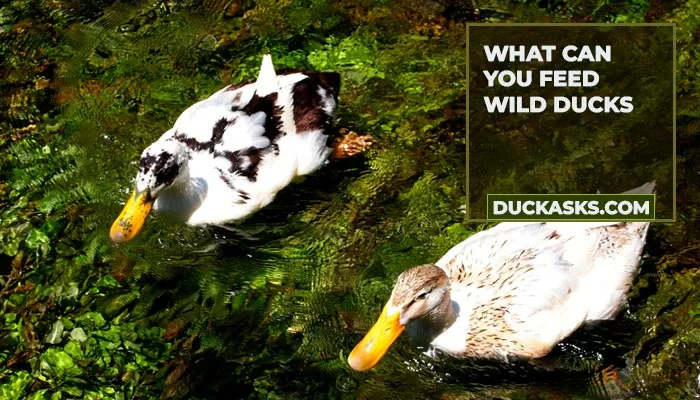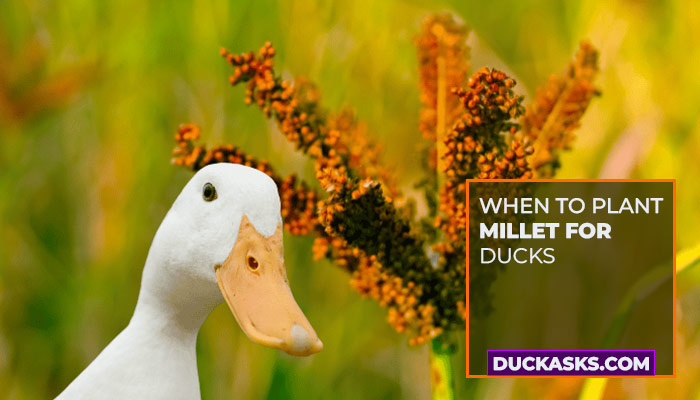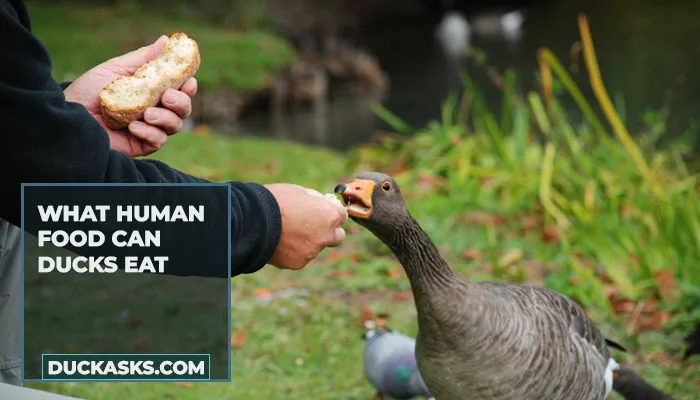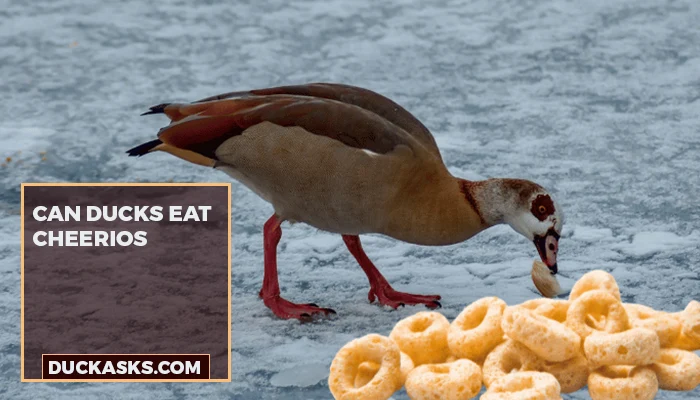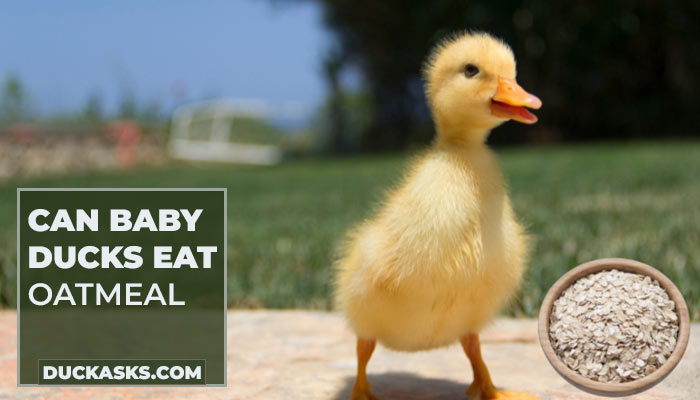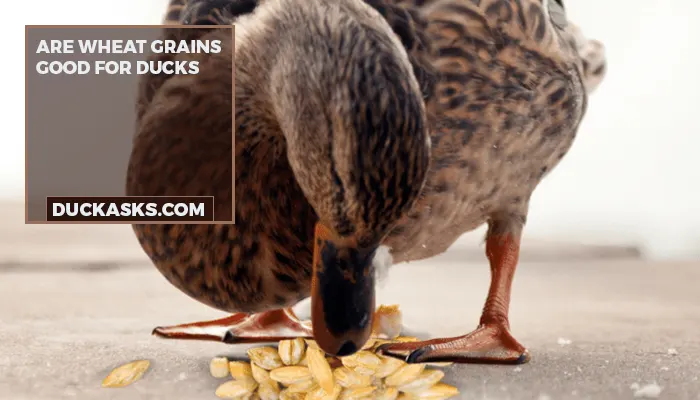Are Maggots Okay for Ducks to Eat?
The casual person living in the city might not be well versed in the diets of ducks. As new duck owners, or simply as a duck enthusiast, you might wonder, are maggots okay for ducks to eat?
Well, this is the article for you! In fact, maggots are one of the favorite foods of ducks. It is definitely okay for ducks to eat maggots regardless of how appalling maggots may seem to us.
The foraging nature of ducks allows them to sieve through mud and soil to obtain their food, and maggots are an easy find for them, as bugs and insects often lay their eggs in ponds.
Let us dive in to learn more about ducks eating maggots.
Read more about ducks food:
What Are Maggots?
The larvae of the fly are called maggots. This basically means that maggots are in the premature stage of flies. They are typically found in decaying matter, where they eat plants or dead animals.
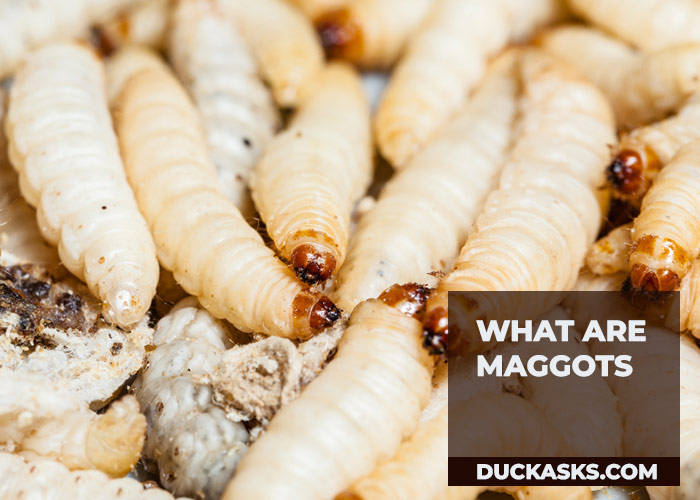
Maggots are beneficial to the soil because they aid in the breakdown of organic debris and the recycling of nutrients into the soil. As disgusting as they might sound to us, maggots are quite the delicious meal for ducks.
Can Ducks Eat Maggots?
Yes, ducks love to eat maggots and will forage for maggots in the soil and from the pond beds. Protein, lipids, and amino acids are abundant in maggots. They are a very healthy addition to the duck’s diet.
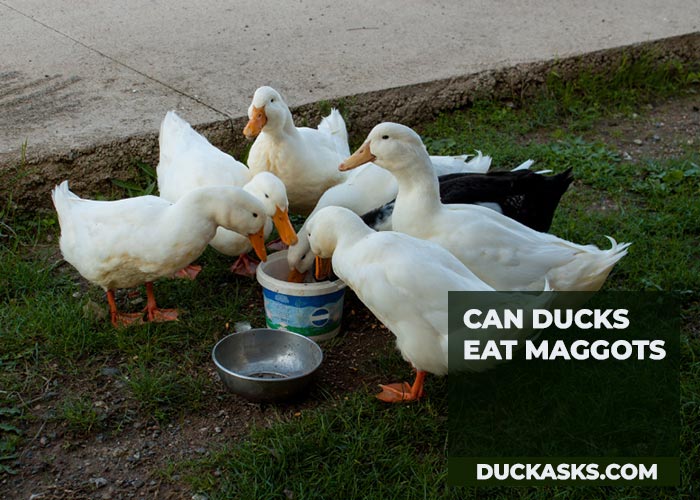
To answer the question simply − it is okay for ducks to eat maggots as they have always been a part of their diet.
For duck owners, adding maggots to your ducks’ meals could earn you some brownie points from your pet ducks!
Are There Any Risks Associated With Ducks Eating Maggots?
Overall, there aren’t any major risks of ducks consuming maggots. Maggots are a part of their natural diet, which too a very nutritious one.
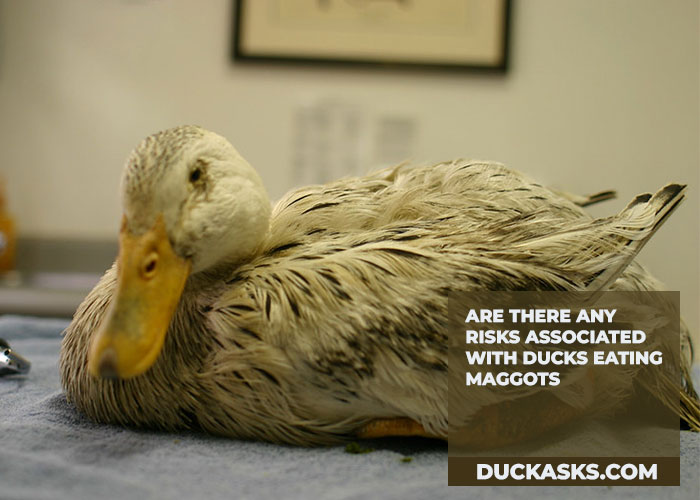
Although, it was seen that adding excess maggot supplementation to duck feed sometimes resulted in softer eggs and gave the duck eggs a fishier taste and odor.
For ducks in the wild, this may be no issue at all. However, for poultry farm owners who raise ducks to sell their eggs, this might pose an issue.
What Are the Benefits of Ducks Eating Maggots?
There are endless benefits to ducks eating maggots. From extra nutrition to keeping ducks cool during hot summer days, maggots are a power food for ducks!
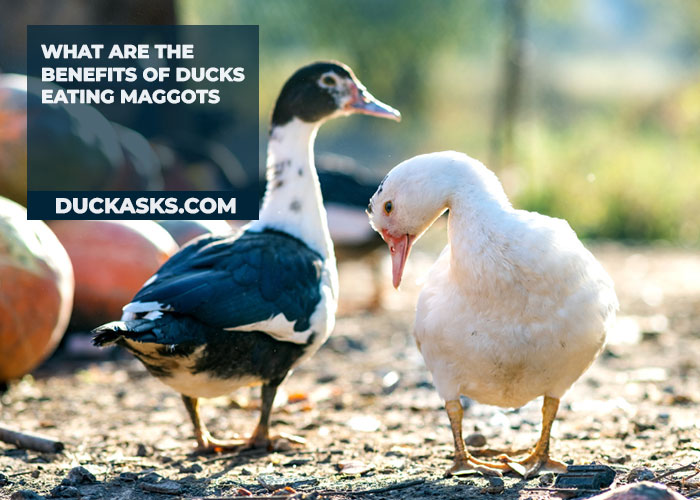
Let me get you up to speed on some of the top benefits of feeding duck maggots.
01. Good Protein Source
Maggots are rich in healthy fats and proteins. These wriggly maggots provide more minerals than the earthworms or mealworms that ducks eat.
Even if the duck consumes no other source of protein, maggots are enough to provide ducks with a sufficient amount of protein.
02. Provides Gut Bacteria
Maggots also provide ducks with gut bacteria that protect the duck’s health . The bacteria in the maggots are often good for the bacteria and strengthens the duck’s gut biome. As a result, your ducks’ digestion will improve.
03. Source Of Vitamins
Vitamin D and A-rich maggots are an essential part of the diet of growing ducklings. But the point to remember is that maggots may be harmful to the duckling as thy light loan with digestion.
04. Recycling the Environment
The maggots themselves need composting. As they are eaten by the ducks, they are processed and recycled.
05. Hydration
Maggots are full of water themselves. Ducks cannot sweat like us, so they need other mechanisms to make themselves not feel too hot during summer.
Maggots help the ducks stay hydrated and cool during summer.
What Are the Cons of Feeding Maggots to Ducks?
Everything comes with pros and cons. Since we have seen the benefits of maggots, let us look a bit deeper and see if there are any cons or not.
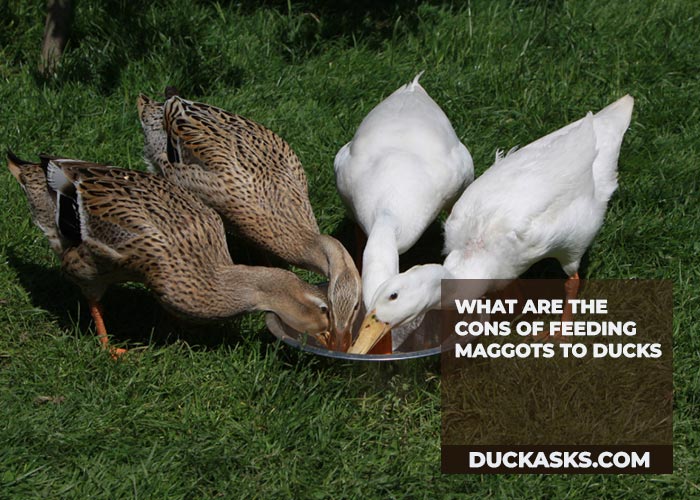
1. Botulism
The maggots that are commercially bought as duck feed are grown for the purpose of being a poultry feed. Therefore, despite its origin, these maggots are generally safe to eat for ducks.
On the contrary, maggots found from decaying food or plants may not always be safe! Ducks are vulnerable to botulism, which is caused by a toxin picked up from decaying organic matter.
Maggots often contain these toxins depending on where they originated from. Botulism can have severe harmful effects on ducks, starting from paralysis, tremors, or even death!
2. Quality Of Eggs
Consuming too many maggots may produce softer duck eggs which may have a fishy taste or even a fishy odor to it. This can be attributed to the high fat and protein content of the maggots.
Can Ducks Eat Fly Maggots?
Ducks eat all kinds of maggots, which include fly maggots as well. They are not picky eaters and will pretty much gobble up any kind of maggot you put in front of them. Ducks consume fly larvae as a defense against flies that might potentially bring parasites and illnesses.
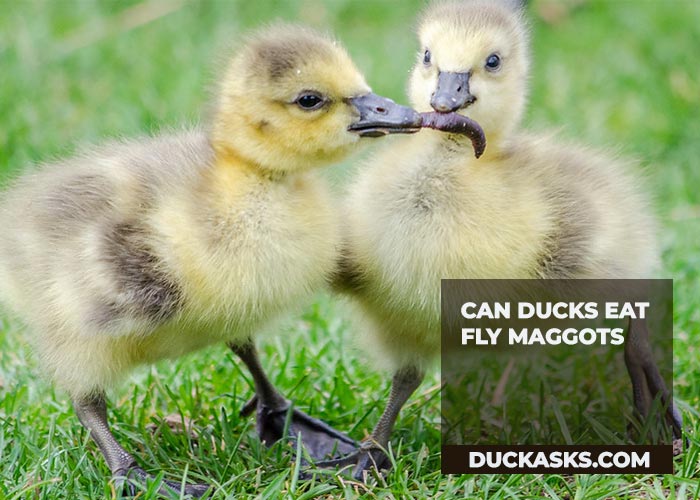
However, this may backfire on the ducks itself and cause them diseases. The larvae of botfly is especially known to cause diseases to fowls like ducks.
Fun fact – Ducks are a great way of getting rid of flies in your backyard or around your pond, as they eat the fly maggots voluntarily.
How to Safely Feed Maggots to Ducks?
The first thing to ensure when feeding your ducks maggots is to make sure the maggots are Fresh. Now you might wonder how larvae found in decaying matter be fresh?
Fresh maggots are white or off-white in color, and their texture should resemble that of hard jellies, as in they should be firm when touched. Anything beyond this, DO NOT feed your ducks!
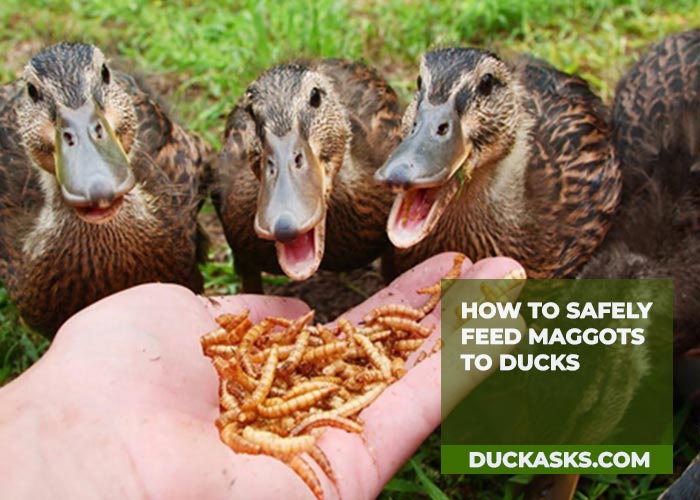
Maggots that have browned are old and will not provide any nutrition to your maggots. Rather, it may even cause digestive problems.
You can either buy packaged larvae, either fresh or freeze-dried. If you are feeling extra ambitious, you can cultivate your own maggots by using fresh fruits or leftover meat.
An easy and very safe way of feeding maggots to your ducks is to scatter maggots around the garden or ponds and encourage the ducks to forage for them!
This helps domesticated ducks hone in on their natural instincts as well as feel rewarded as they find these juicy treats for themselves.
Local bait shops or even poultry feed shops sell maggots for all kinds of birds and fowl. It is important to remember that if you have left food to attract maggots, the food should be removed at the end of the day to prevent it from rotting.
Final Words − Should Ducks Eat Maggots?
Even if maggots do not look appetizing to us, ducks devour maggots and love to eat them! So now you know that it is okay for ducks to eat maggots.
Maggots not only provide nutrition to the ducks but also helps the environment in the process!
Article References −
Image Credits:

